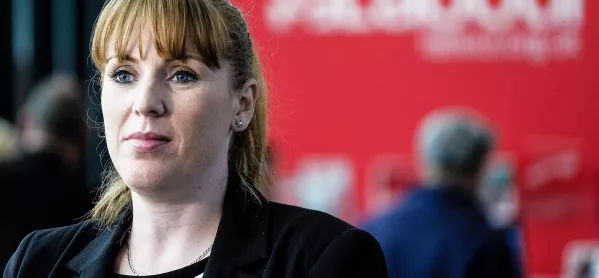
- Home
- Need to know: What is Labour’s academies policy?
Need to know: What is Labour’s academies policy?

What is the Labour Party’s policy on academies?
With continuing political instability in Westminster prompting speculation about an early general election, the question is more than a matter of academic interest.
As the party launches its latest consultation on plans for a National Education Service, here is what you need to know:
What is the proposed National Education Service?
Jeremy Corbyn set out his plan for a National Education Service (NES) during the 2015 Labour-leadership campaign.
Analogous to the NHS, he said “it is time to start putting the case for investment in learning from cradle to grave”.
Analysis: Angela Rayner walked a tricky political tightrope
Opinion: A National Education Service is good in principle
Opinion: Rayner and Hinds offer empty education policies
In 2017, the party devoted 11 pages of its general election manifesto to the NES, covering early years, schools, skills and higher education, but critics have complained about a lack of detail both here and in the 10-point charter that shadow education secretary Angela Rayner unveiled at that year’s party conference.
Didn’t Labour discuss plans for academies last year?
Yes, Angela Rayner’s 2018 conference speech set out more details, but still left many questions unanswered.
She said no new academies would be created under a Labour government, and that existing academies would be able to return to local authorities, “assuming there is capacity and a desire to do so in the relevant local authority”.
The party also reiterated its existing policy of ending the free-schools programme.
But Ms Rayner was careful not to commit the party to abolishing academies or putting them back under the control of local authorities.
Instead, she said Labour would “bring all publicly funded schools back into the mainstream public sector with a common rulebook and under local democratic control”.
Councils would be handed back some powers that academies currently have, most notably over admissions, and local authorities would once again be allowed to open new schools.
However, Labour did not set out details of the “common rulebook” or “local democratic control”.
And multi-academy trusts would see their wings clipped, with their constituent schools given powers over “decision making” and budgets.
Do we know the nuts and bolts of how the NES will work?
In a word, no.
In fact, the document, which focuses on local accountability, asks more new questions than it answers old ones.
One thing it does make clear is that the NES would not simply involve rewinding the clock to where the education system stood before the Conservatives came to power.
“In our haste to rectify the damage the Conservatives are doing to our education system, it could be tempting to simply return to what has been done in the past. But this would be a wasted opportunity,” it says.
It also sets out, in broad-brush terms, the party’s philosophical approach: it is against “the Conservatives’ market-based approach” and says “we need the education of our citizens to be seen as a collective endeavour, something in which we all have a role to play”.
It is also clear that it wants more local democratic accountability, saying “local communities will be empowered to influence change where it is needed and guarantee that the education system meets their needs”.
And most intriguingly, it wants to ensure that “any local accountability system is reciprocal”.
The consultation says the Tory approach to accountability is top-down and “overallocates blame to education professionals and education institutions”.
Instead, Labour sees accountability as a two-way street, with “parents, citizen and local communities” accountable to their educational institutions.
But what this means in practice is not explained.
So what questions does it ask?
Rather than outlining detailed structures and policies, it asks for comments about what these should be. Key questions include:
- Which structures, channels and mechanisms would need to be put in place at a local, regional and national level to support a high-quality, accountable NES?
- Should there be a single democratically accountable structure for the NES that deals with each part of the system and its institutions at local and national level?
- If so, what could this look like? What would it need to consider to ensure educational institutions retained appropriate levels of autonomy and independence?
- If not, what should local democratic accountability look like for educational institutions? What resources should it set, monitor and allocate?
When will we know more?
The consultation closes on Sunday, 30 June, and we may well get some detail of the outcomes at the party conference in September.
But given the chaos in Westminster, don't hold your breath.
Register with Tes and you can read five free articles every month, plus you'll have access to our range of award-winning newsletters.
Keep reading for just £4.90 per month
You've reached your limit of free articles this month. Subscribe for £4.90 per month for three months and get:
- Unlimited access to all Tes magazine content
- Exclusive subscriber-only stories
- Award-winning email newsletters
You've reached your limit of free articles this month. Subscribe for £4.90 per month for three months and get:
- Unlimited access to all Tes magazine content
- Exclusive subscriber-only stories
- Award-winning email newsletters



